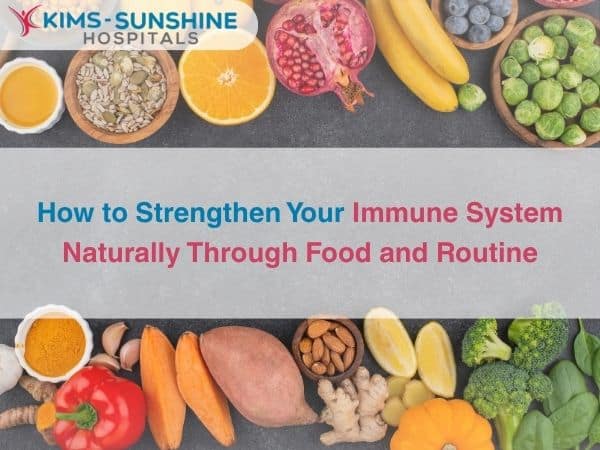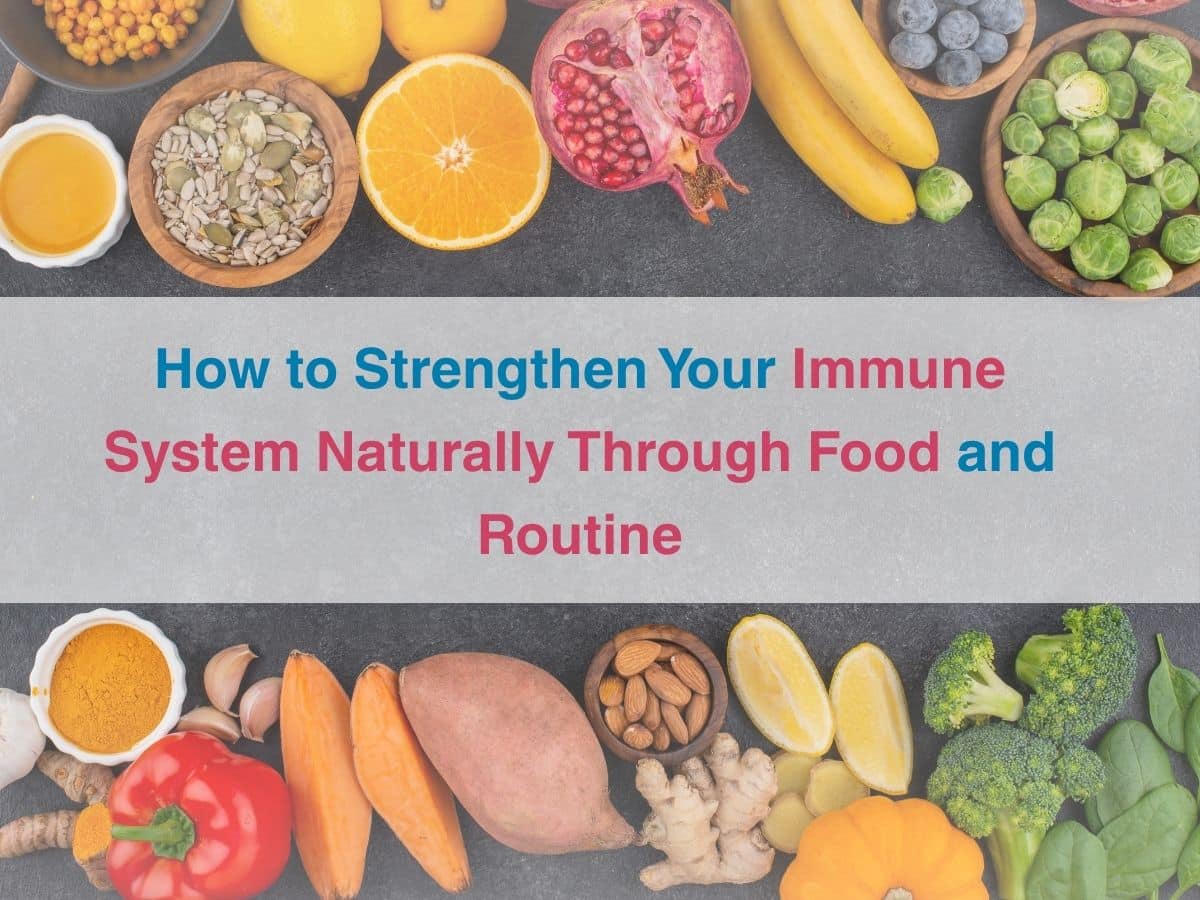
How to Strengthen Your Immune System Naturally Through Food and Routine

Our bodies are exposed to various microorganisms everyday and we still survive with no discomfort. We breathe, eat and do our daily activities with ease without any hurdles! Thanks to our immune system that works round the clock with no rest, maintaining the haemostatic balance and health of an individual. Immunity is the ability of an organism to resist harmful microorganisms entering the system, preventing infectious diseases. It comprises a complex network of cells, organs and proteins that are responsible for protection.
Immunity and immune responses can differ with ethnicity, race, living conditions, genetics etc. Indo-US research has found that Indians carry more natural killer cells that can detect and terminate infections at an early stage, as these immune cells are acquired due to the genetic make up that survived natural environmental challenges during prehistoric times.
How To Naturally Boost Immunity With Foods And Lifestyle
A balanced diet rich in fruits, vegetables and lean protein help to boost immunity with food in association with adequate sleep, stress management and physical activity.
- Foods rich in vitamin C, garlic, ginger, green leafy vegetables, yogurt provide required vitamins and proteins that help in the functioning of the immune system. Lean protein like poultry, fish, chickpeas which are good in vitamin B6 levels, improve immunity.
- Spices like turmeric, garlic and ginger which have anti-bacterial and anti-inflammatory properties help in immune strengthening. Hydration is essential as it lines your body’s 1st layer of defence that is the mucosal membranes. Healthy fats rich in omega 3’s like salmon fish reduces inflammation.
- Pro-biotic foods like yogurt and curd or fermented foods and drinks maintain gut bacteria that crucially train our immune system for strong immune responses.
Lifestyle Changes
- Sleep is the most important factor for a body to recover, rejuvenate and function. Minimum of 7 hrs restful sleep every night helps the body to produce immune boosting proteins called cytokines.
- Stress management like meditation, yoga can help in calming the nerves and in turn boosts individual immunity.
- Regular exercise like walking for at least 3 hours a week can improve bodily functions, supporting a healthy immune system.
- Smoking and alcohol should be avoided at any cost as too much consumption impacts immunity.
Seasonal Immunity Tips
- For summer, consider foods like mangoes which are rich in vitamin A, C and K that boost and improve immunity, digestion and promote faster healing.
- Yogurt which is rich in probiotics helps to maintain gut microbes, balancing immune responses and keeps digestive issues at bay. It is also rich in vitamin D, which helps in normal immune functioning.
- Water melons are 90% water and a low calorie snack that has a cooling and hydrating effect. It is rich in antioxidants like lycopene, cucurbitacin E and vitamin A and C.
- Lemons are rich in vitamin C which acts as an immunity booster, giving a hydrating and cooling effect instantly in summer.
- In spring, consider fresh foods like spinach, amaranth that are rich in vitamins and antioxidants.
- Citrus fruits like oranges, lemons and grape fruits are rich in vitamin C. Berries like blueberry, strawberry contain anti inflammatory benefits.Spices like garlic and ginger possess natural anti bacterial and anti viral properties.
- Include hydration, pro-biotic foods and physical activity to maintain the immune system.
For the rainy season and winter, consider foods that are rich in vitamin C like citrus fruits, spices like turmeric and ginger, leafy greens, nuts and seeds that are rich in vitamin E, zinc and omega 3 fatty acids that aid in boosting immunity. Vegetables like sweet potatoes, carrots, pumpkins are rich in beta carotene which is converted to vitamin A. It is a necessary component of the immune system. Include herbal teas and beverages too, if possible.
Conclusion
Immunity and immune responses do not function as a single entity but are a system that combines various functions in our body. Improving immunity does not necessarily mean to dump your body with immune supplements that only increase the immune cells. The number of cells is of no use if the quality of lifestyle is poor. Improving immunity naturally has its own benefits of creating a natural immune response to many inflammatory and infectious diseases, keeping the individual in a healthy state for a longer time.






